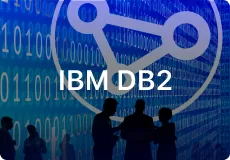Data Warehousing

Companies that Trust BTREE Learners
Data Warehousing Courses

Career Transition
Other Courses
Testimonials
FAQ 's on Data Warehousing
What is a Data Warehouse and why do companies use it?
A Data Warehouse is a centralized storage system where large volumes of organizational data are stored. Companies use it to analyze historical data, generate business insights, support reporting, and enable strategic, data-driven decisions across departments.
How is a Data Warehouse different from a normal database?
A regular database is designed for daily transactional operations, while a Data Warehouse is optimized for analytics and reporting. It supports OLAP queries, aggregated data, and complex queries that help organizations uncover long-term trends
What is ETL in Data Warehousing?
ETL stands for Extract, Transform, Load. It’s the process of pulling data from multiple sources, cleaning and transforming it into a usable format, and then loading it into the Data Warehouse. ETL ensures data accuracy, consistency, and usability.
Do I need programming skills to work in Data Warehousing?
Basic SQL knowledge is essential, and experience with ETL tools like Informatica, Talend, Ab Initio, or SSIS is highly valuable. While advanced coding isn’t always mandatory, understanding data modeling and data pipeline concepts is important.




























